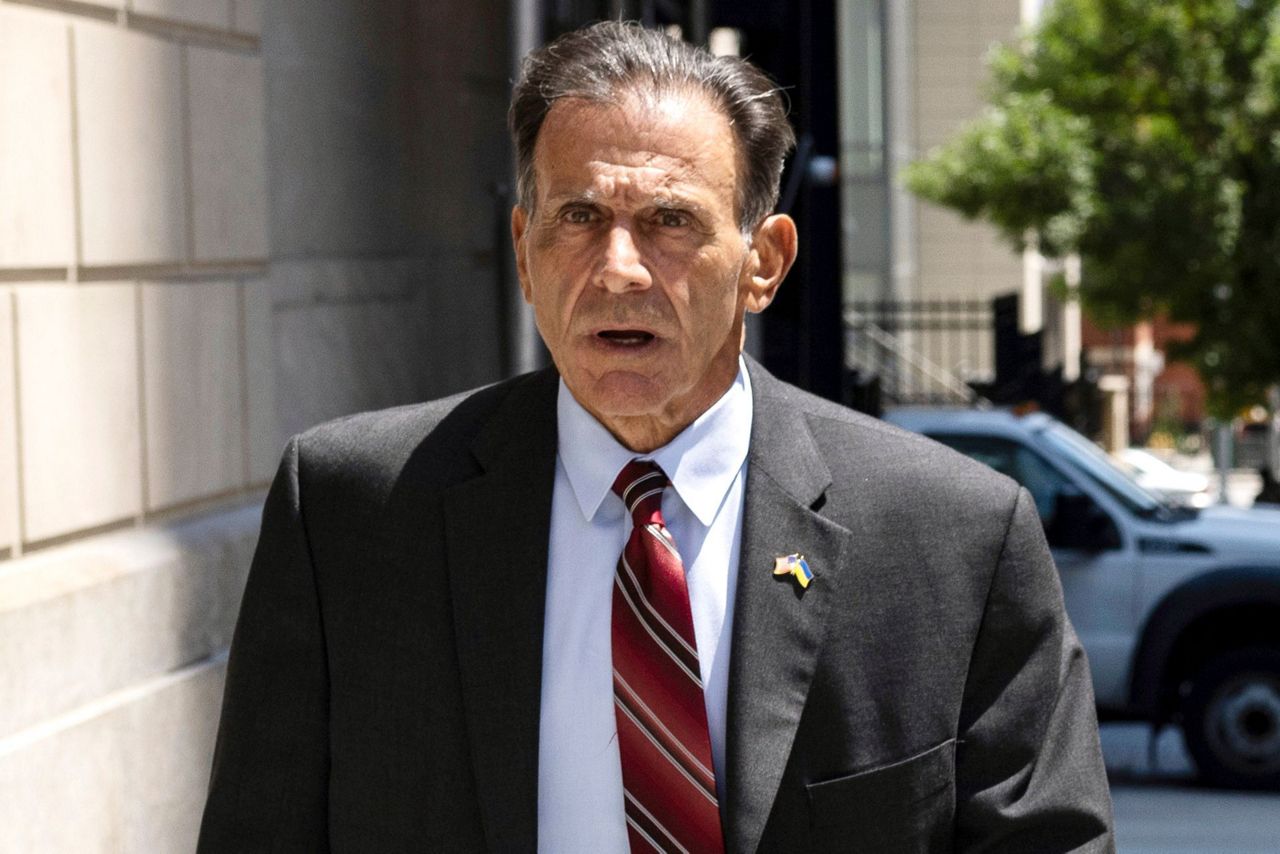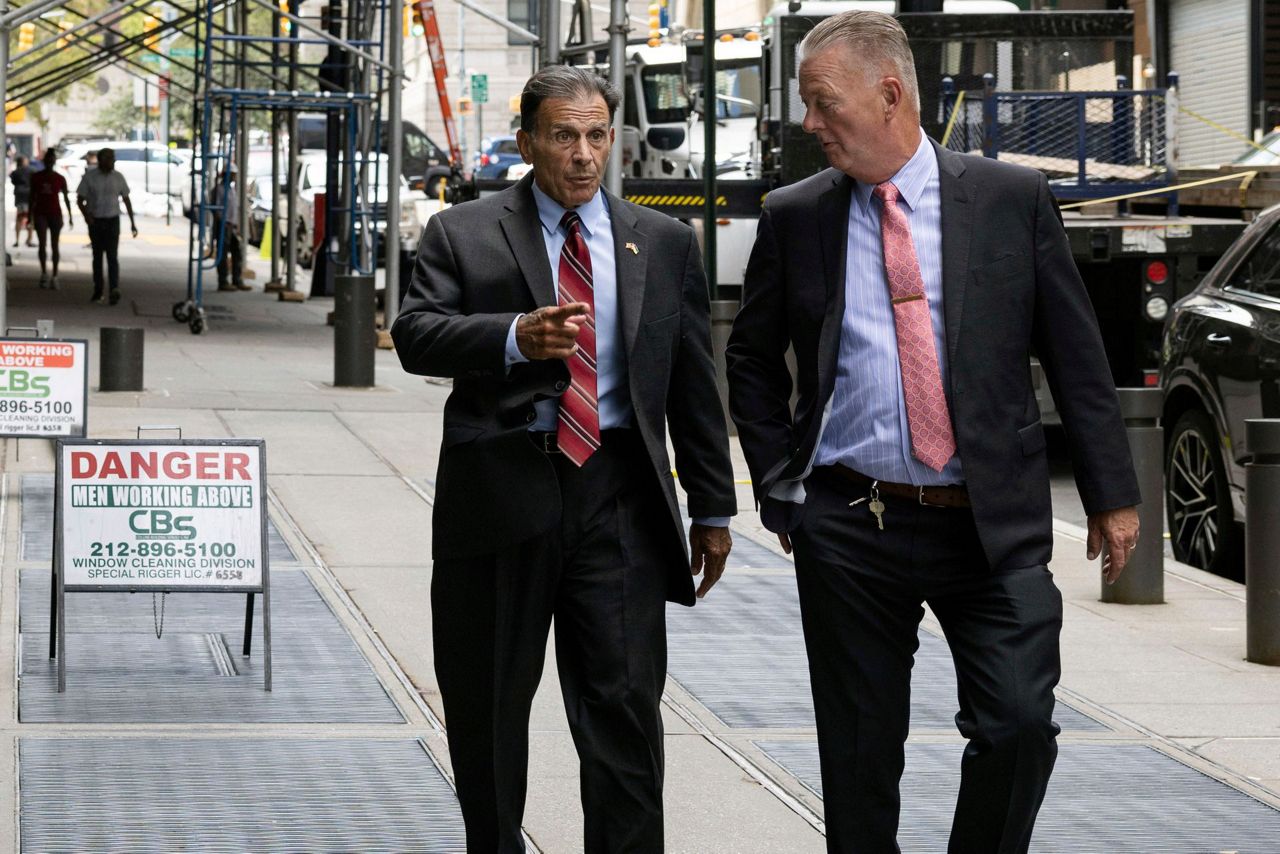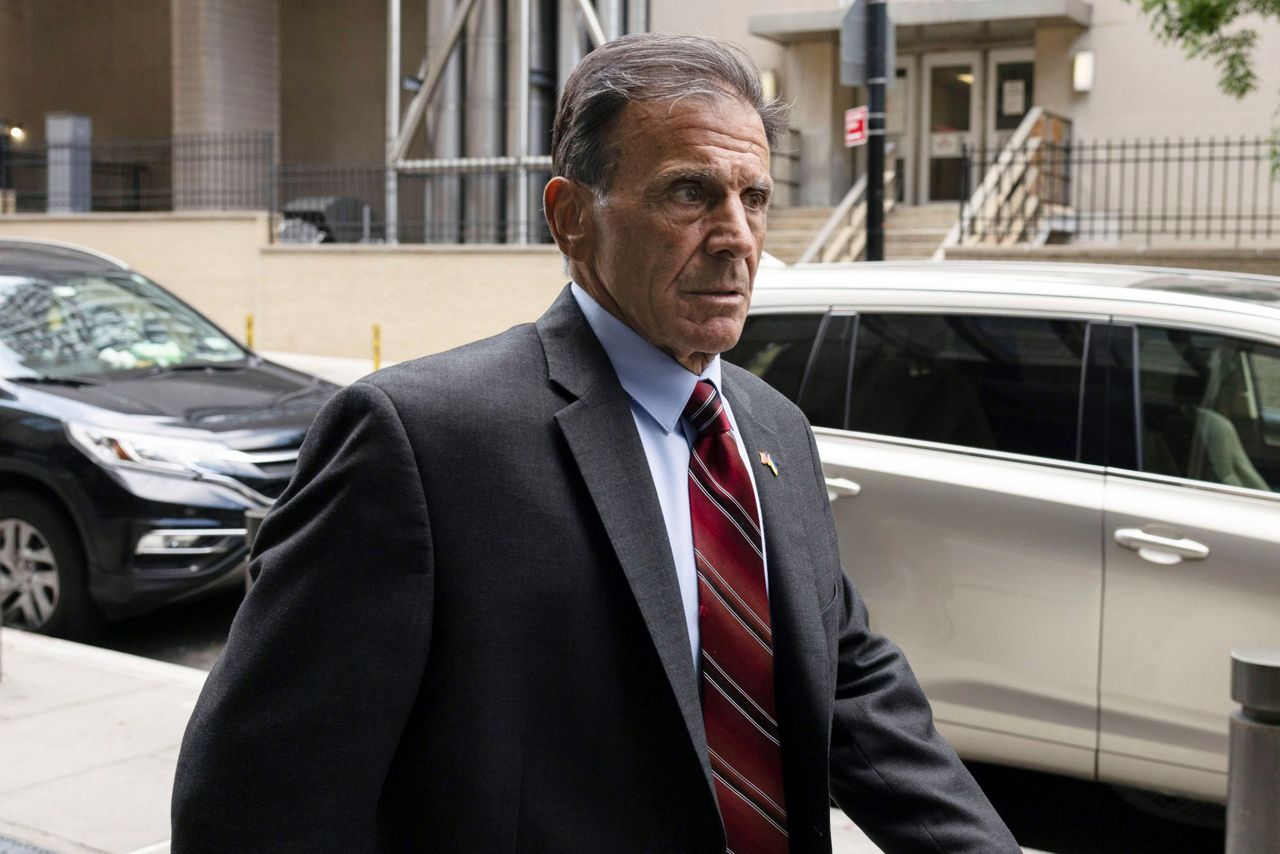NEW YORK (AP) — In the bloody years when killings peaked in New York City, Detective Louis Scarcella built a reputation for closing cases.
A second-generation cop who smoked cigars, ran marathons, worked a side job at a Coney Island amusement park and jokingly put “adventurer” on his business card, the now-retired sleuth has been frank about lying to suspects, even praying with them, to elicit information. In the 1980s and '90s, he got confession after confession. Prosecutors got conviction after conviction.
But in the past nine years, nearly 20 murder and other convictions have been tossed out after defendants accused Scarcella of coercing or inducing false confessions and bogus witness identifications, which he denies. The same prosecutor's office that won those convictions ended up repudiating most of them.
Yet the Brooklyn district attorney has stood by many other cases the detective worked on. For the first time, prosecutors are now retrying one of those long-ago cases.
“This defendant is still guilty,” prosecutor Chow Yun Xie said at the retrial of Eliseo DeLeon, who says he is innocent. DeLeon's murder conviction was overturned in 2019 after he spent 24 years behind bars.
With a verdict due Aug. 31, the retrial illustrates the tricky line the Brooklyn district attorney's office has been walking through a decade of doubts about the work of a onetime star detective.
Scarcella worked homicides as they soared to over 2,200 a year citywide in 1990. There were under 500 last year.
After retiring in 1999, he told the “Dr. Phil” show that he'd done “whatever I have to do within the law” to get confessions or cooperation.
“The bad guys don’t play by the rules when they kill Ma and Pop,” he said. “I don’t play by the rules, but I play within the moral rules and the rules of the arrest in Brooklyn.”
Years later, the DA's office became known for its Conviction Review Unit, which has scrutinized hundreds of cases and agreed to exonerate over 30 people after individual investigations. (Additionally, 90 drug convictions were dropped en masse because of police corruption allegations unrelated to Scarcella.)
So far, 17 people in cases involving Scarcella have effectively been cleared when prosecutors disavowed convictions or declined retrials after judges overturned guilty verdicts.
In two other cases — including DeLeon's — convictions have been overturned, but prosecutors are fighting to restore them. Prosecutors have also concluded that convictions should stand in dozens of other Scarcella-related cases, though some defendants are trying to persuade courts otherwise.
“In every case involving this former detective, CRU exhaustively reviewed all evidence, and the decision as to whether to vacate or uphold the conviction is based on the facts of the individual case, mindful of past findings regarding Scarcella’s conduct," DA Eric Gonzalez's office said in a statement to The Associated Press.
Prosecutors say Scarcella and his partner played only a minor role in DeLeon's case. And prosecutors emphasize that two eyewitnesses — the victim's wife and a stranger — returned to court 27 years later to identify DeLeon anew as the killer of victim Fausto Cordero.
"We were compelled to present that evidence” again, the DA's office said.
A would-be robber shot Cordero as he headed home from a 1995 religious confirmation party with his wife and other relatives, including the couple's 7-year-old son. A tip led police to DeLeon, then 18. Detective Stephen Chmil was assigned to the case, and his partner, Scarcella, got involved.
Just how involved is a key issue in the retrial.
Case paperwork shows that Scarcella accompanied Chmil and co-lead Detective Anthony Baker to arrest DeLeon. As they took DeLeon to a police station, he said he was out of town when the shooting happened.
At the stationhouse, Scarcella was on hand as DeLeon was read his rights, paperwork shows. But there's dispute over whether the detective participated in an interrogation that, police and prosecutors say, produced a confession documented in a few brief sentences. DeLeon says detectives made it up.
When Baker and some prosecutors later turned on a video camera, DeLeon asked for a lawyer to “make sure that my situation is right.”
"I’m not going to just go and be a fool, put myself on tape and say I did something I didn’t do. I'm not stupid,” he said in the video, which jurors at his initial trial weren’t allowed to see.
Scarcella testified last month that he didn't remember the case but believes he wasn't at the interrogation, though Baker said Scarcella was there but said nothing, and Chmil said his partner wasn't the type to stay mum.
DeLeon's lawyers don't buy that Scarcella was a bit player.
“Everything in this case has been tainted" by Scarcella and Chmil, defense attorney Cary London said in a summation last month. He argued that the confession was fabricated and that the witness identifications were inaccurate and questionably obtained.
Xie said that the case "withstood the test of time” and that the focus on Scarcella and Chmil was misplaced.
The verdict is up to Judge Dena Douglas, who is hearing the case without a jury.
Scarcella and Chmil, also retired, have now spent years defending their investigations as court hearings and news stories picked apart their cases. Their lawyers say that the investigators used techniques that are legal and endure today and that prosecutors signed off on every homicide arrest and vetted all the evidence.
“The detectives worked diligently to apprehend the correct perpetrator and stand by their work,” attorneys Alan Abramson and Joel Cohen said in a statement to AP.
At DeLeon's retrial, Scarcella made clear he isn't second-guessing himself.
“You prided yourself on being a good homicide detective in the ’80s and ’90s?” London asked.
“I still do,” Scarcella said.
Copyright 2022 The Associated Press. All rights reserved. This material may not be published, broadcast, rewritten or redistributed without permission.





